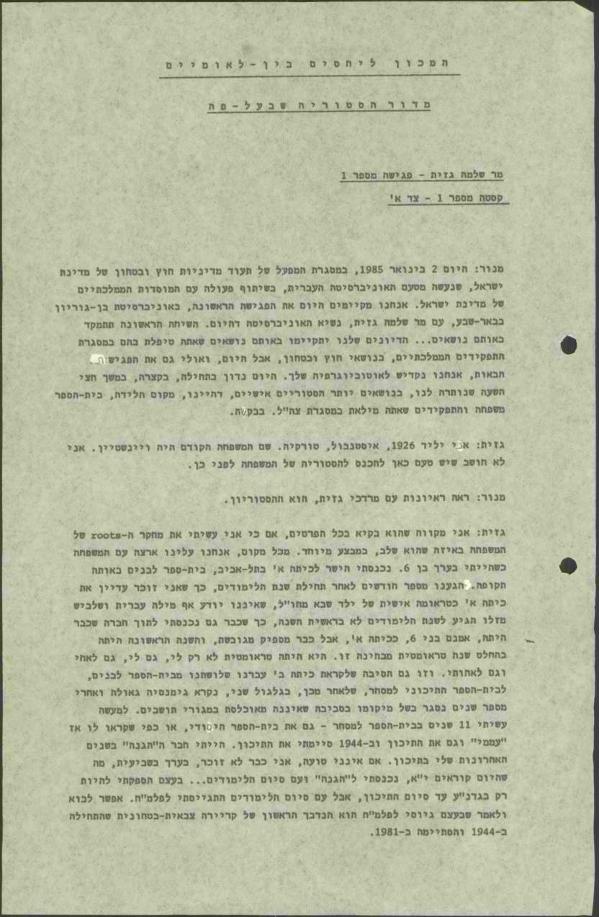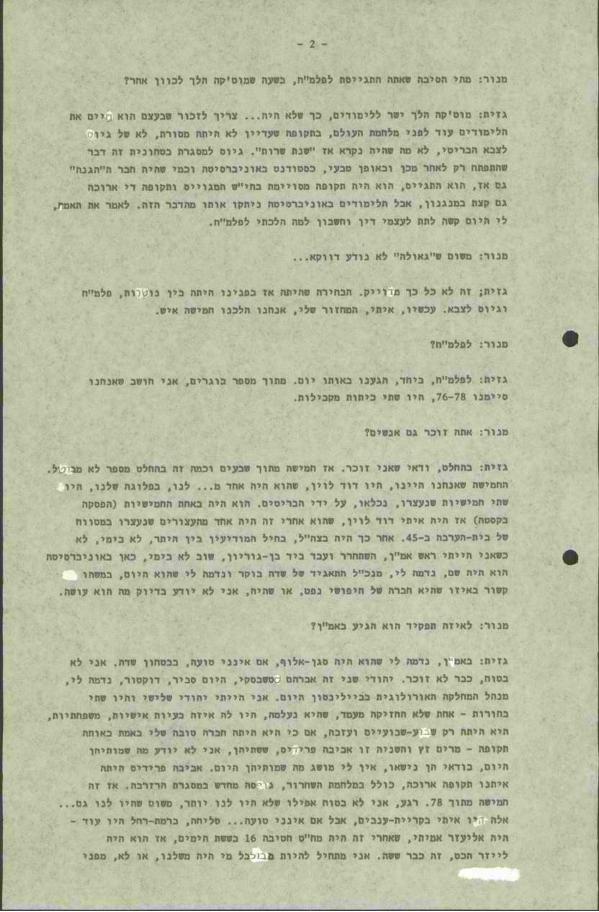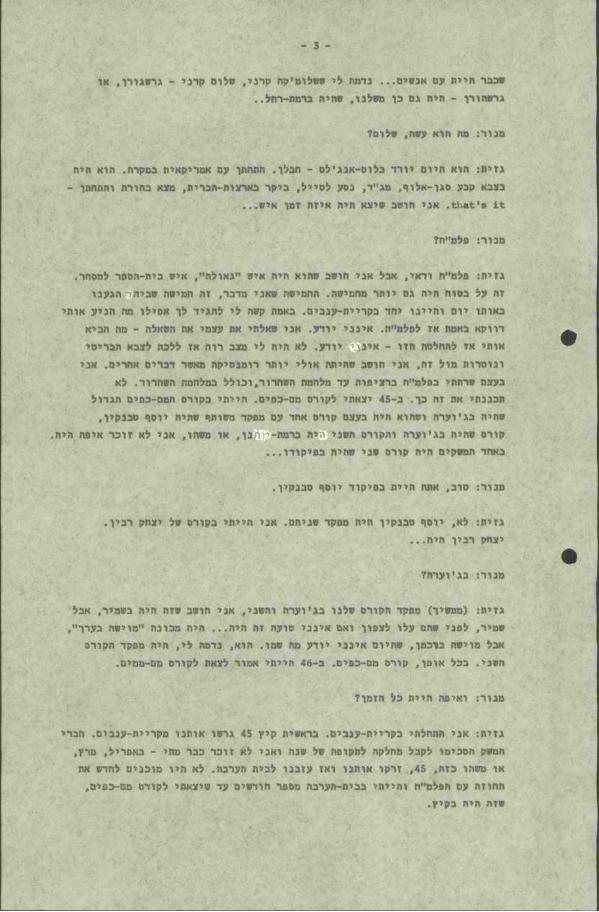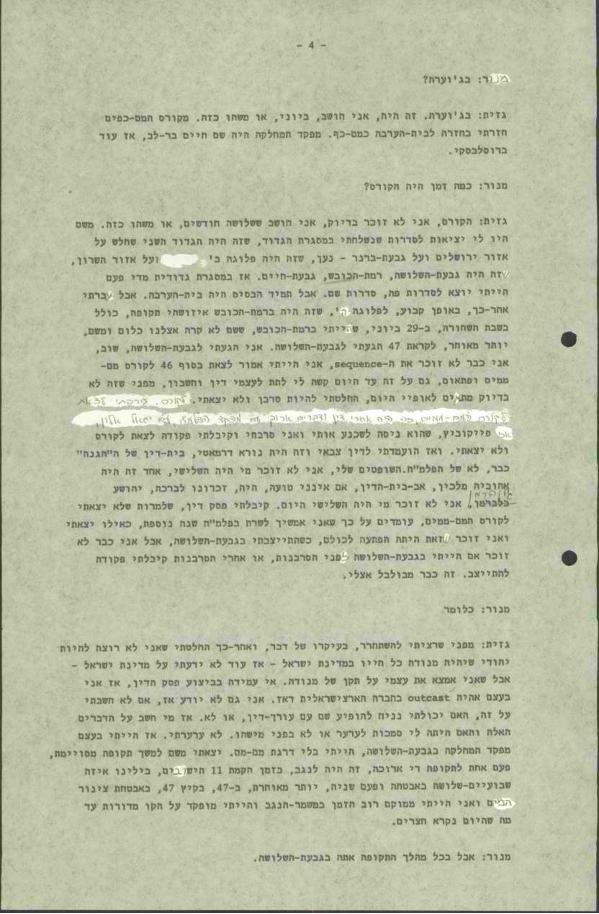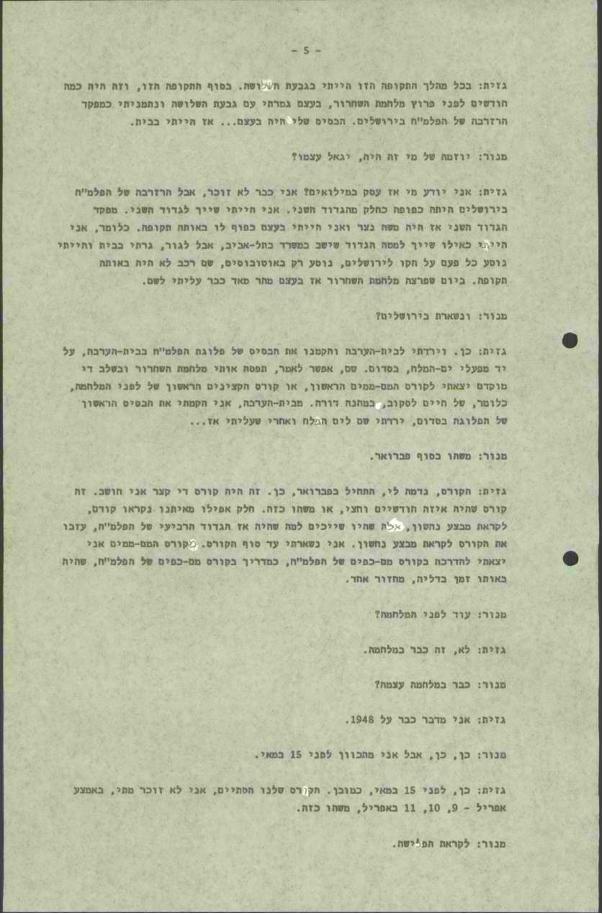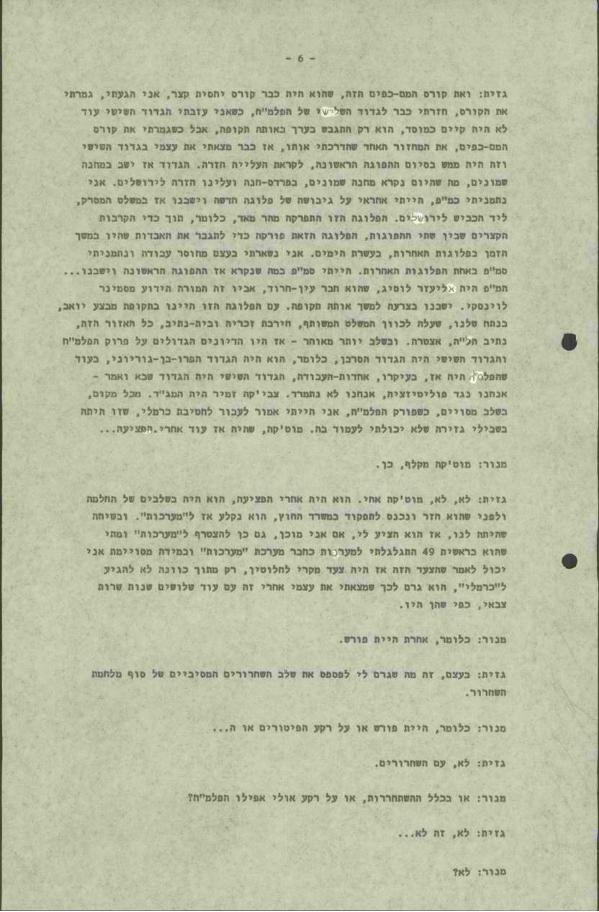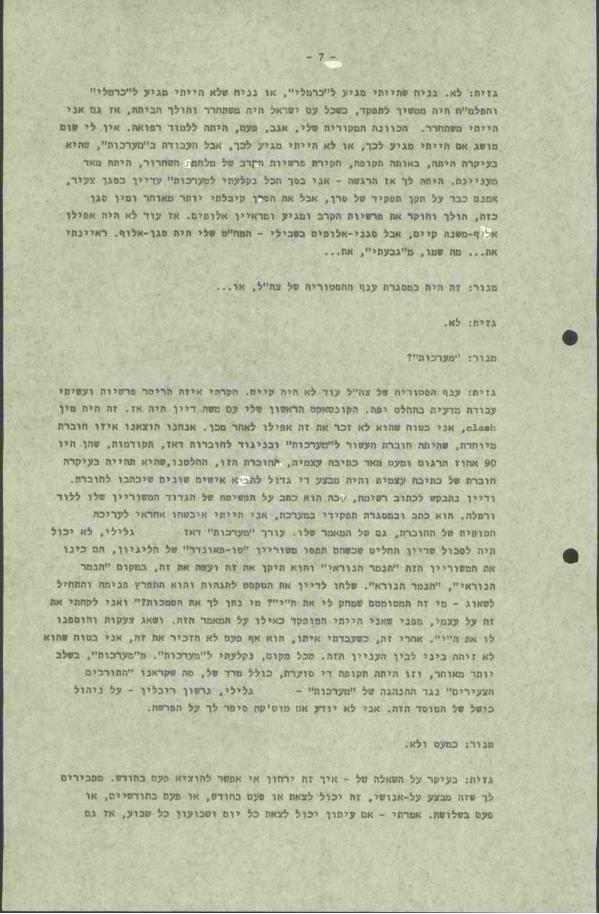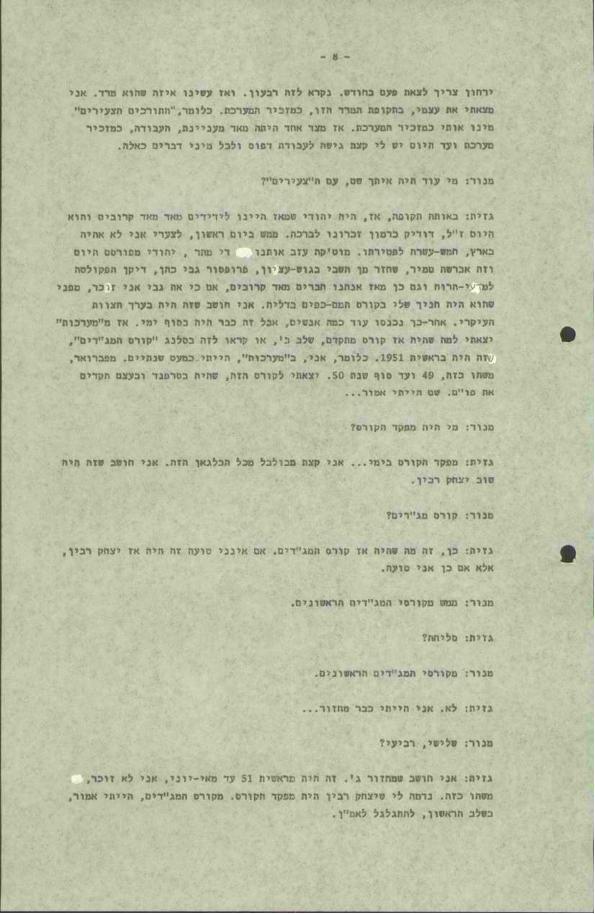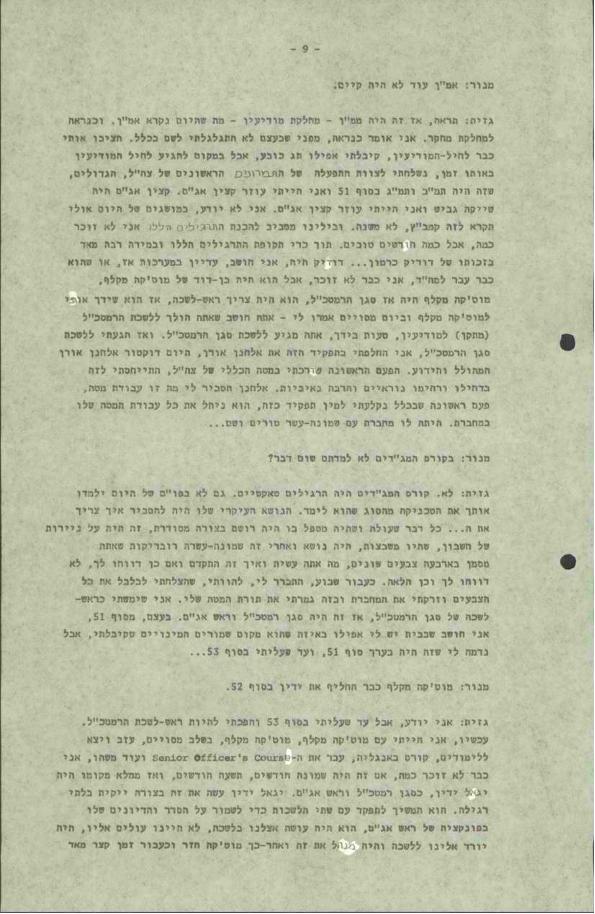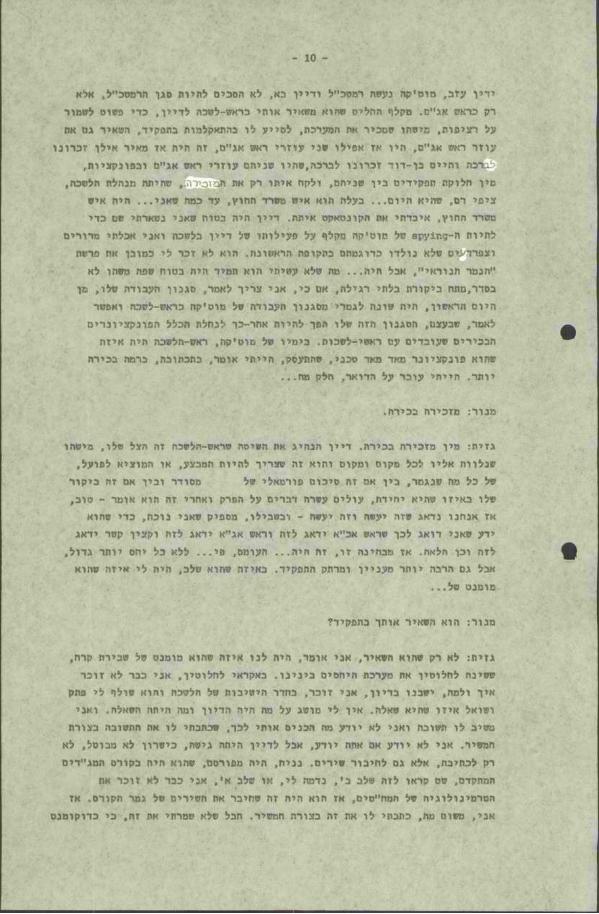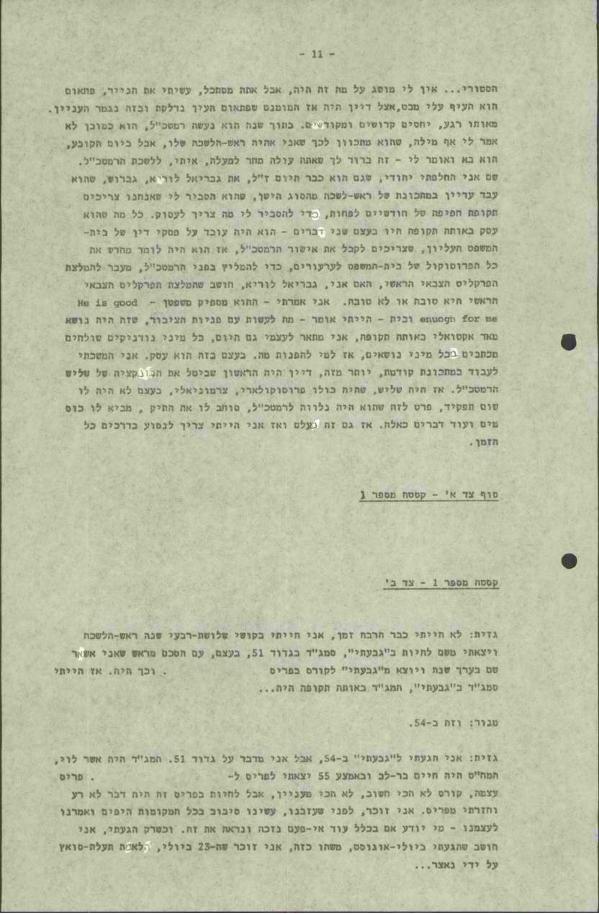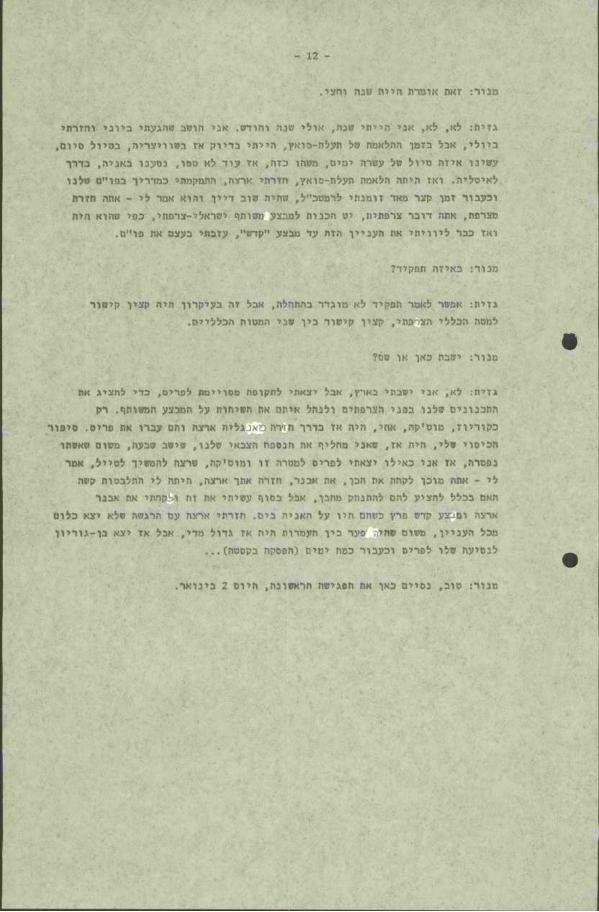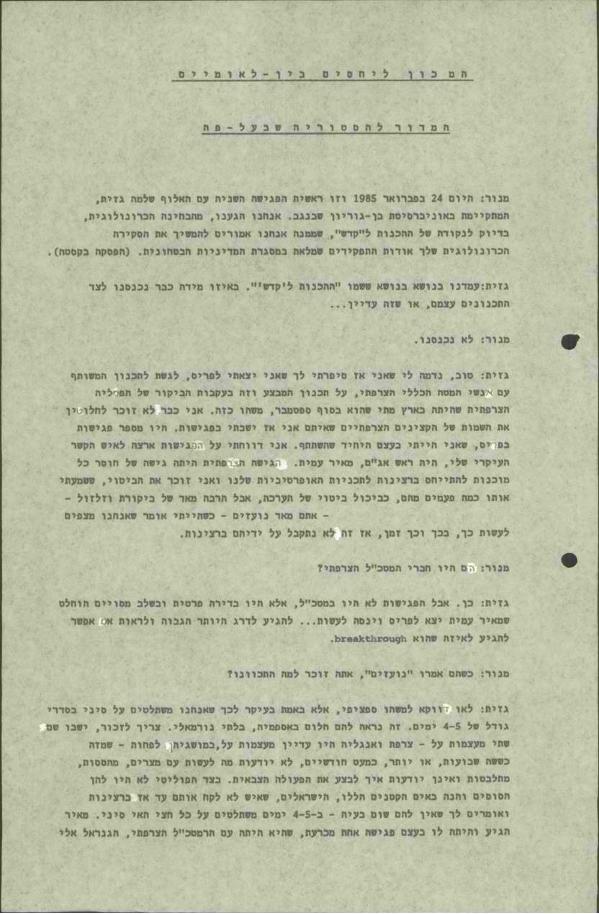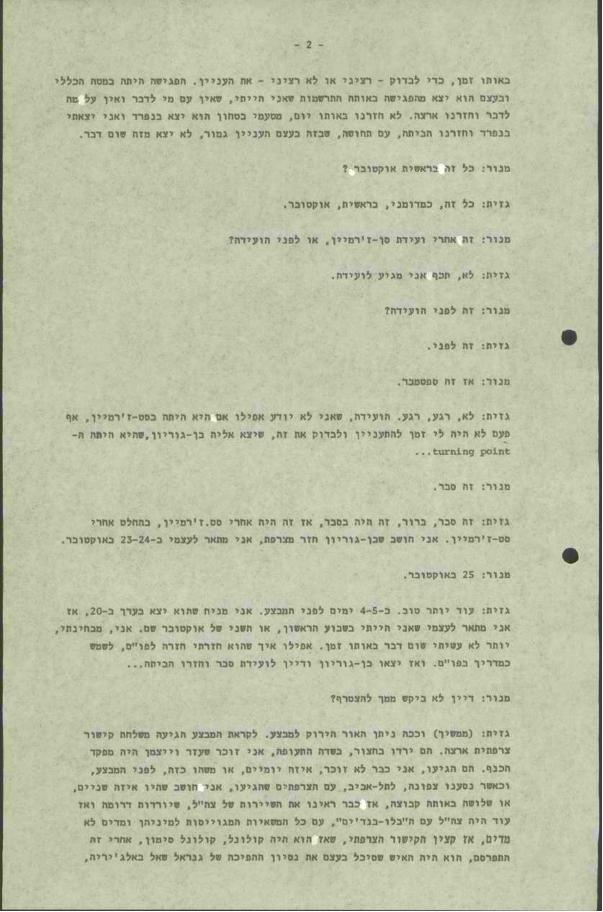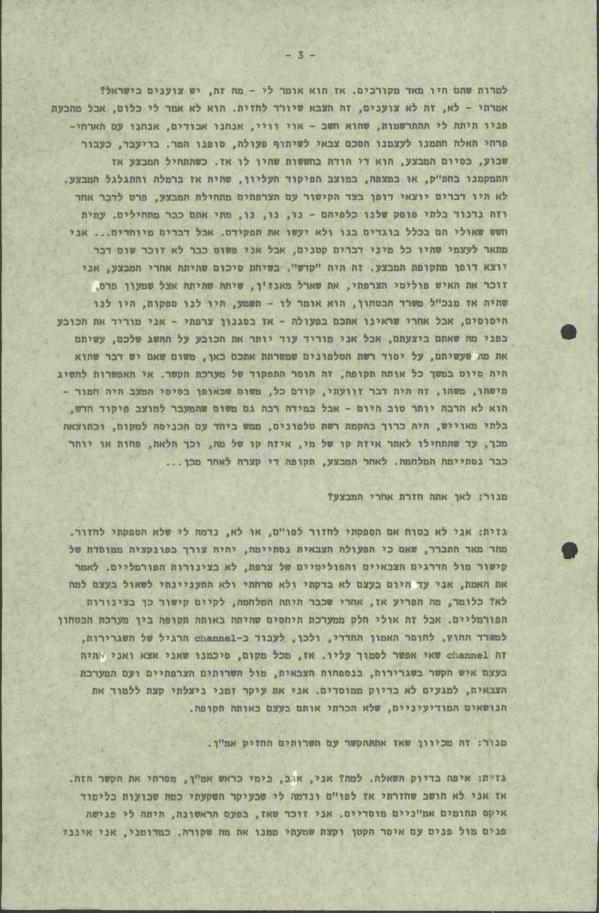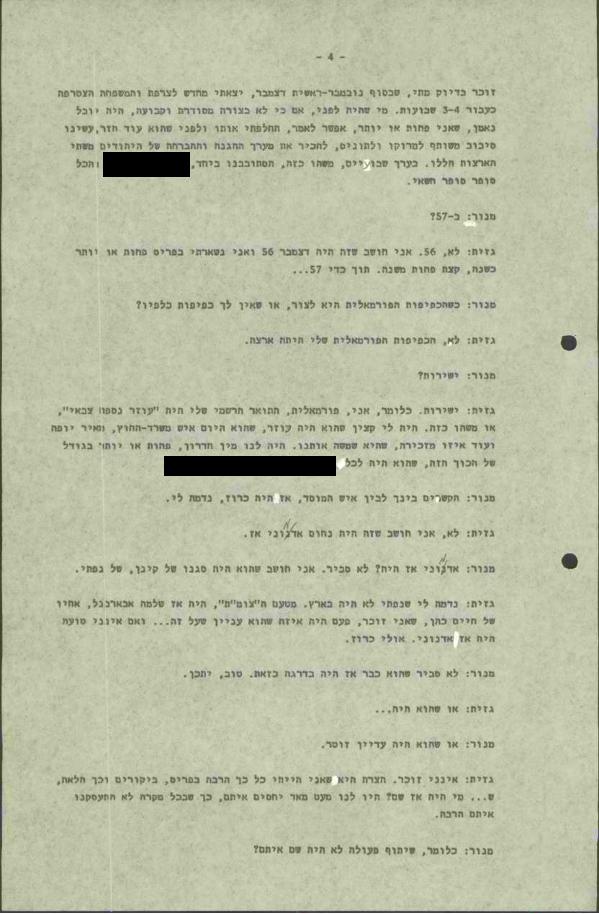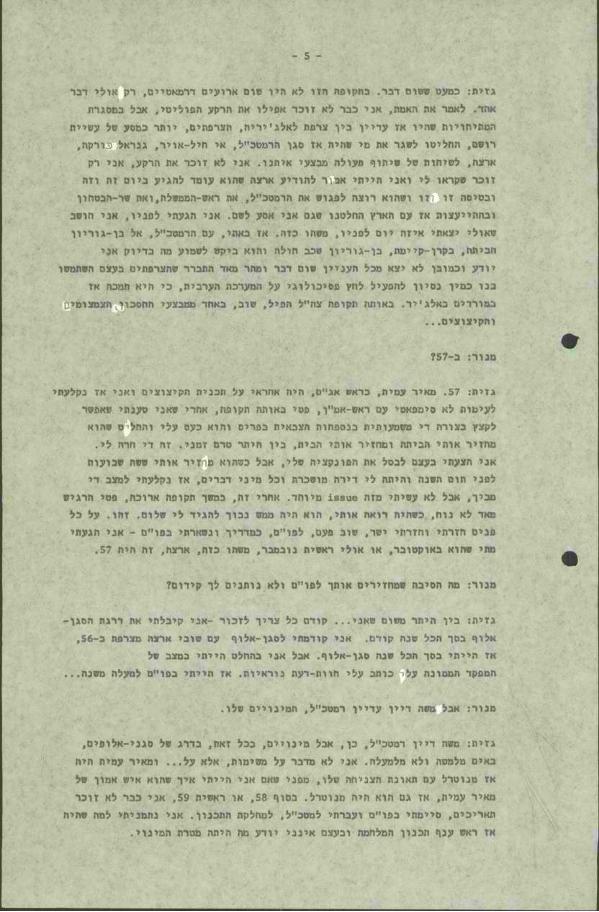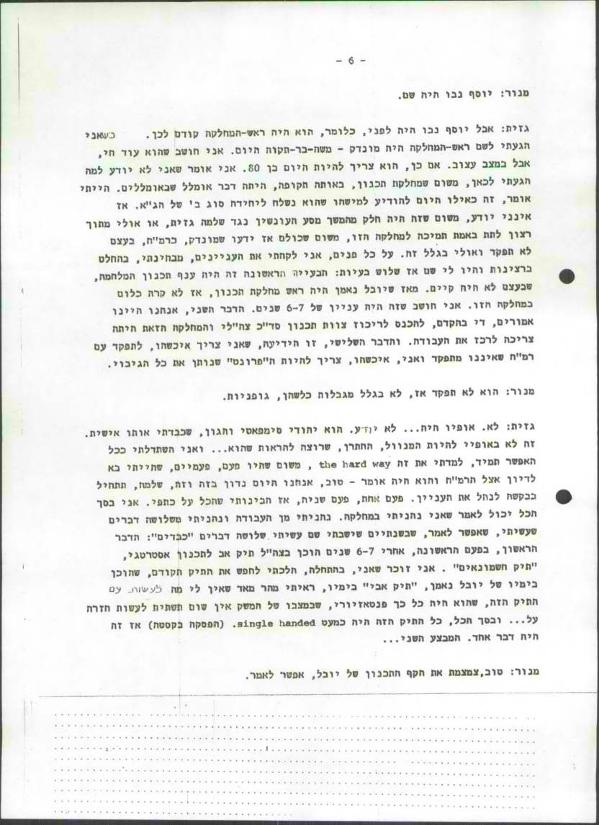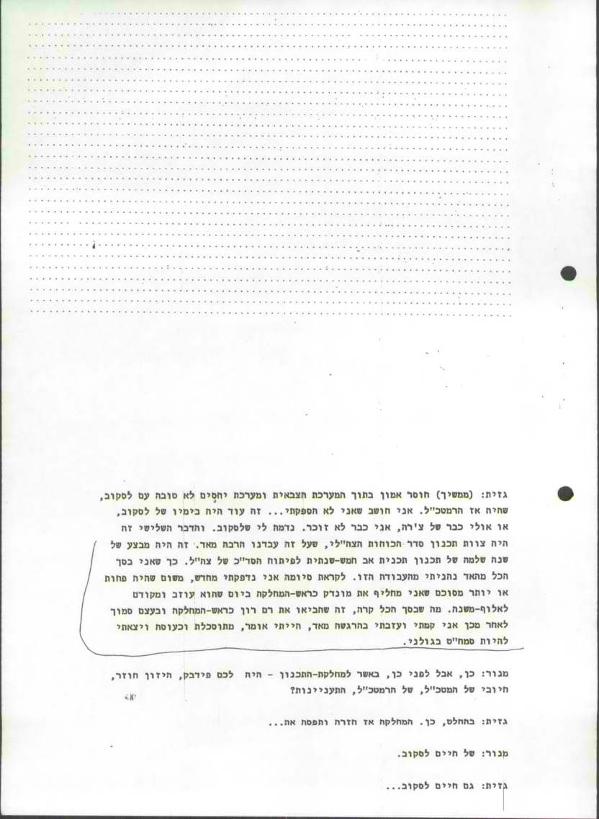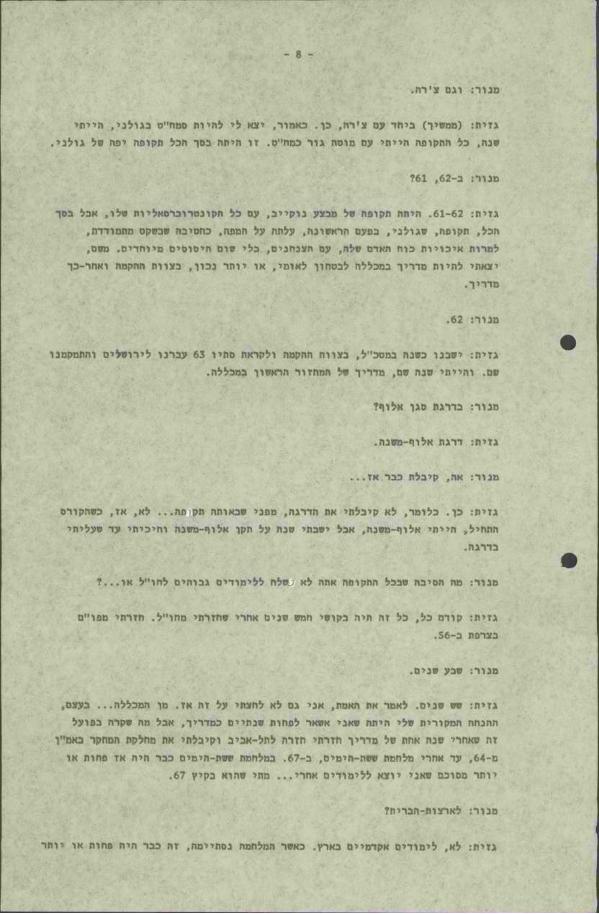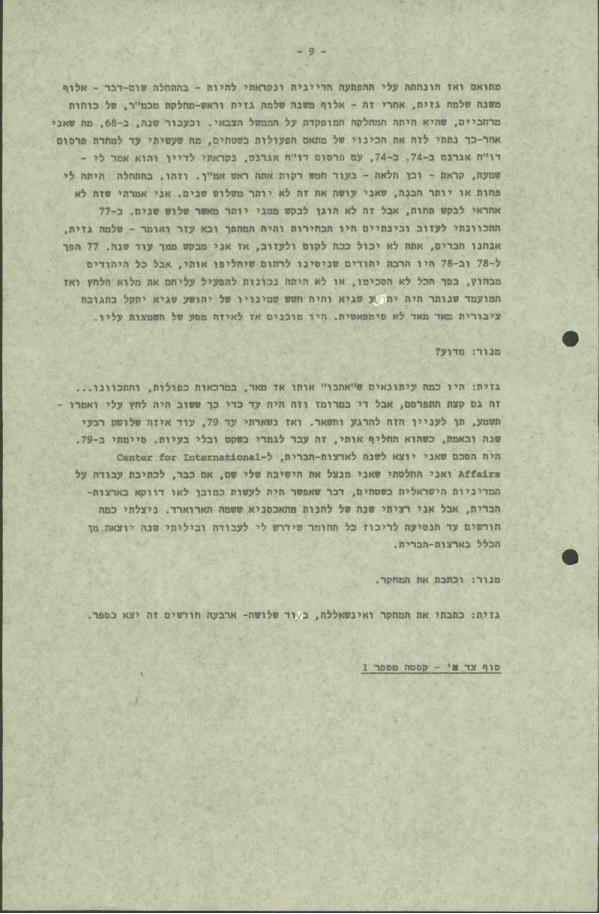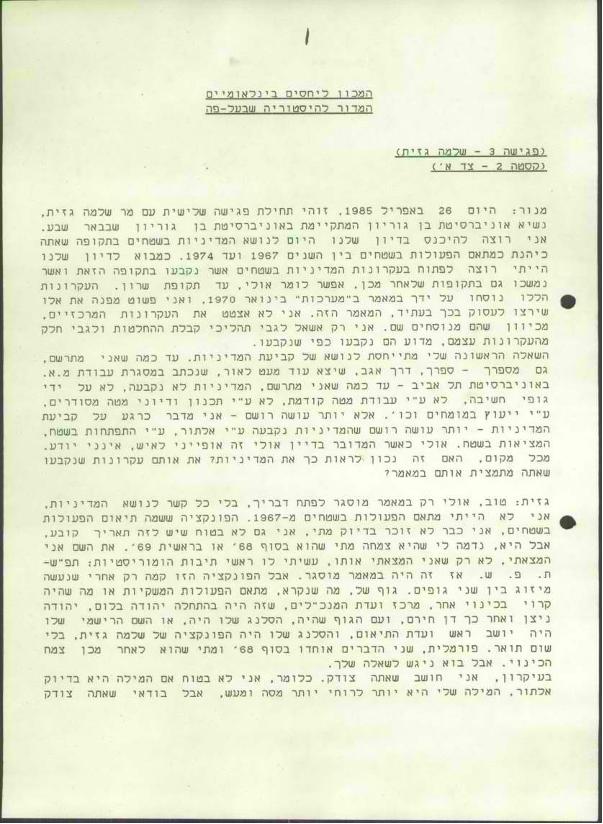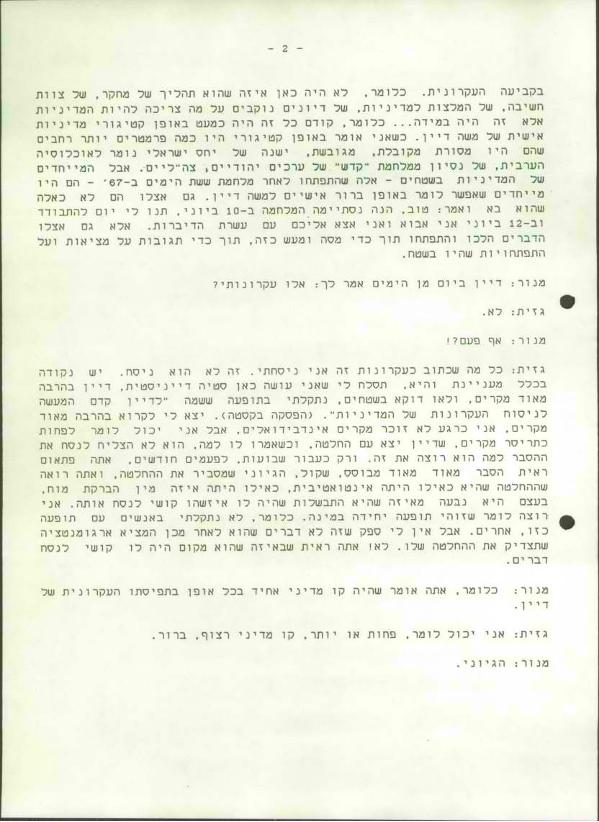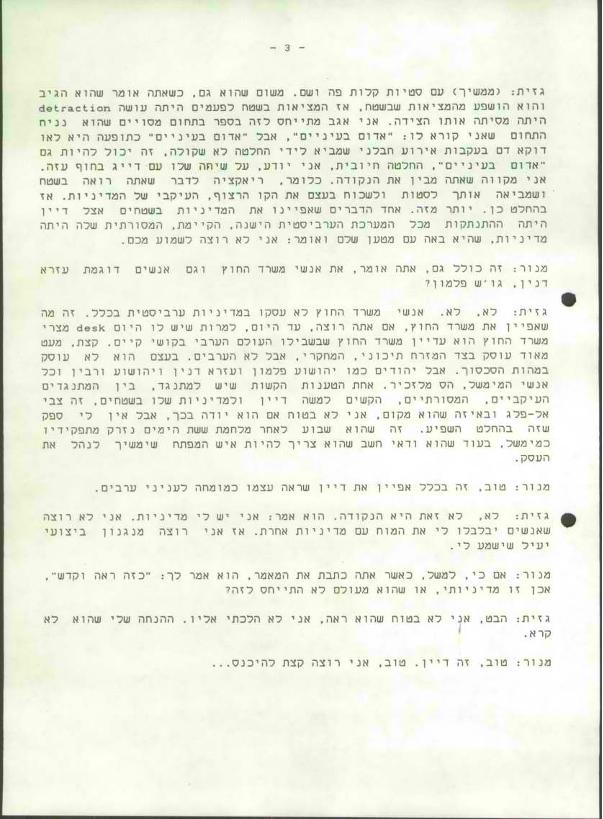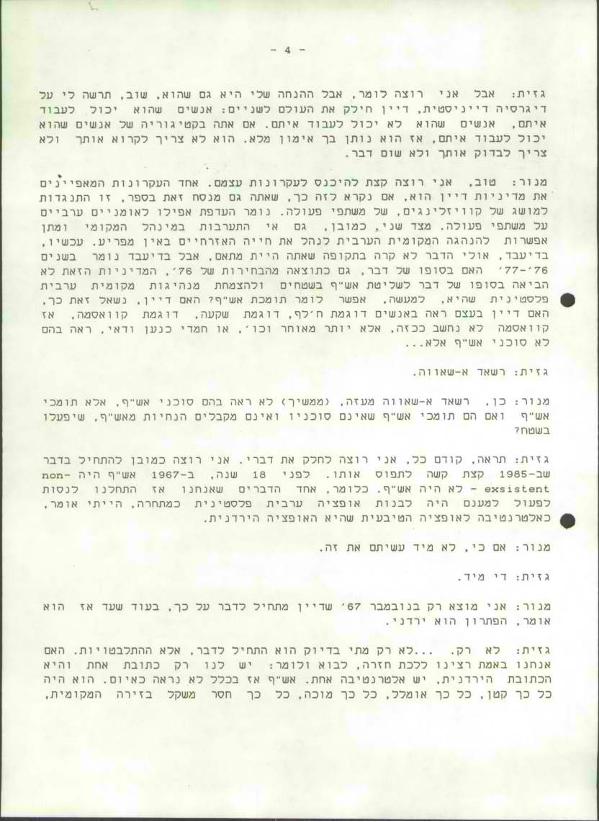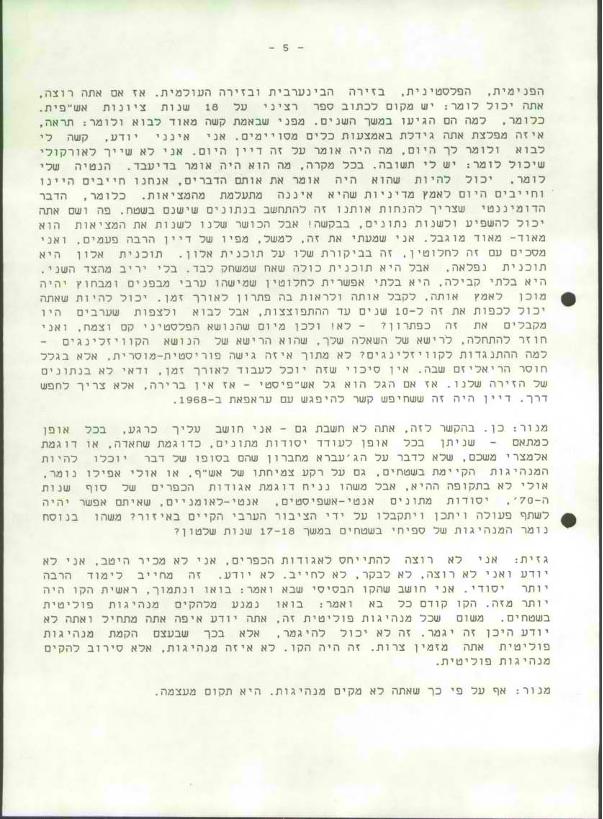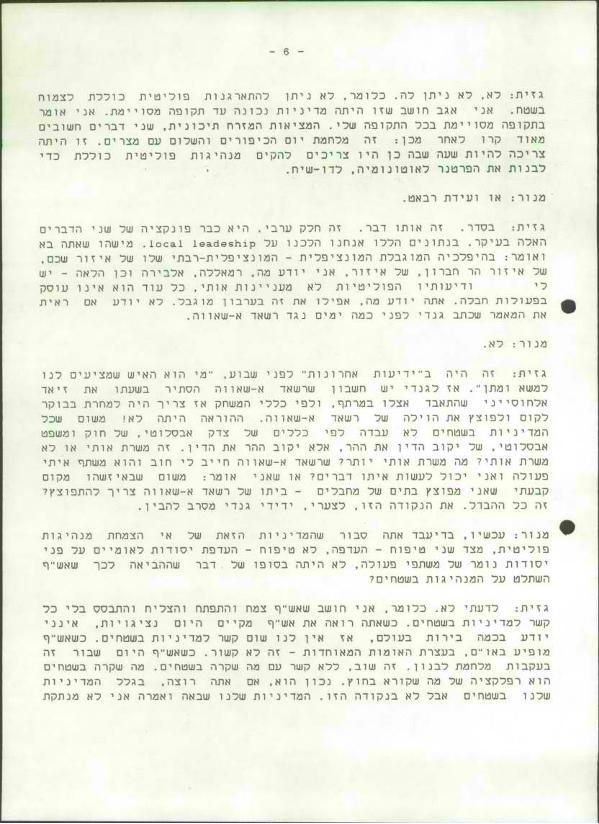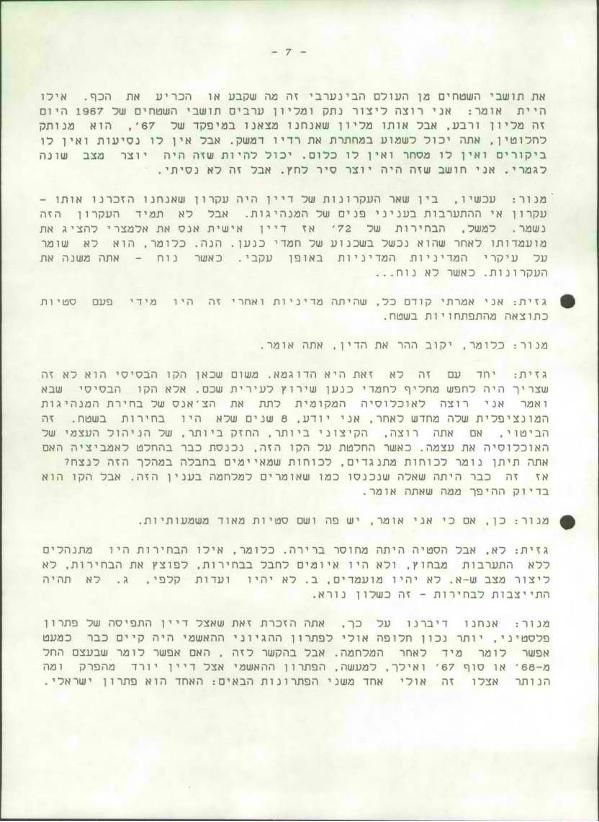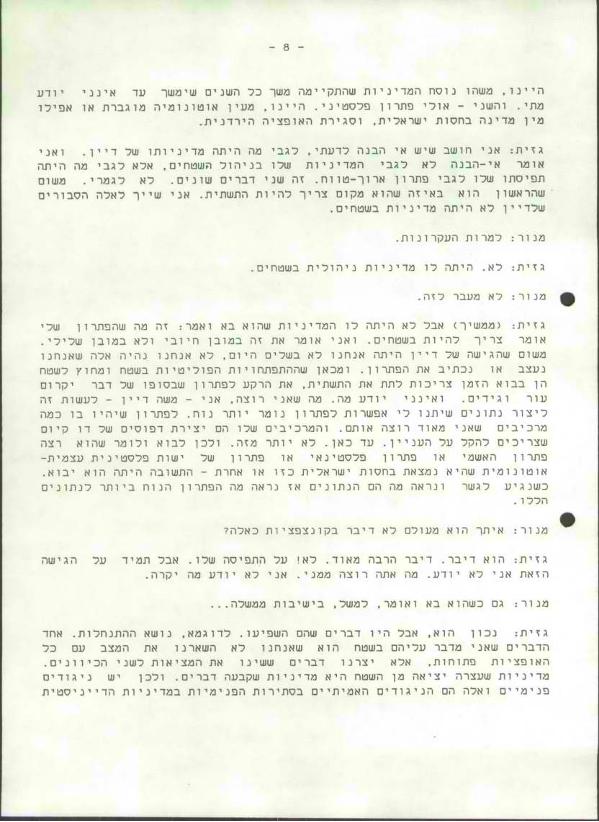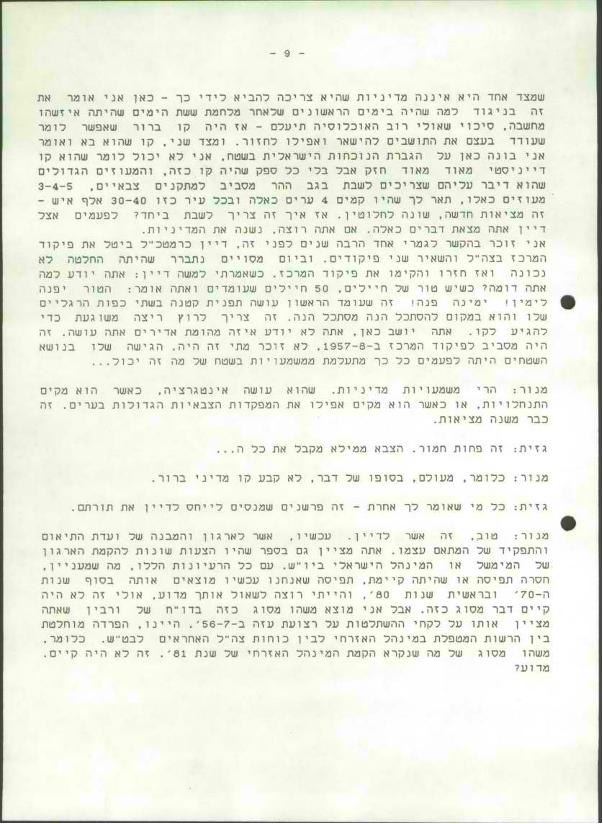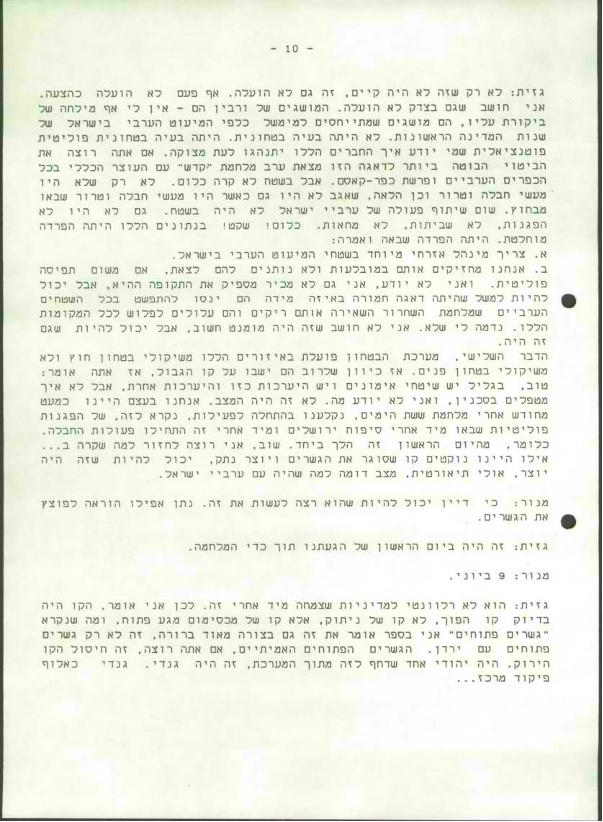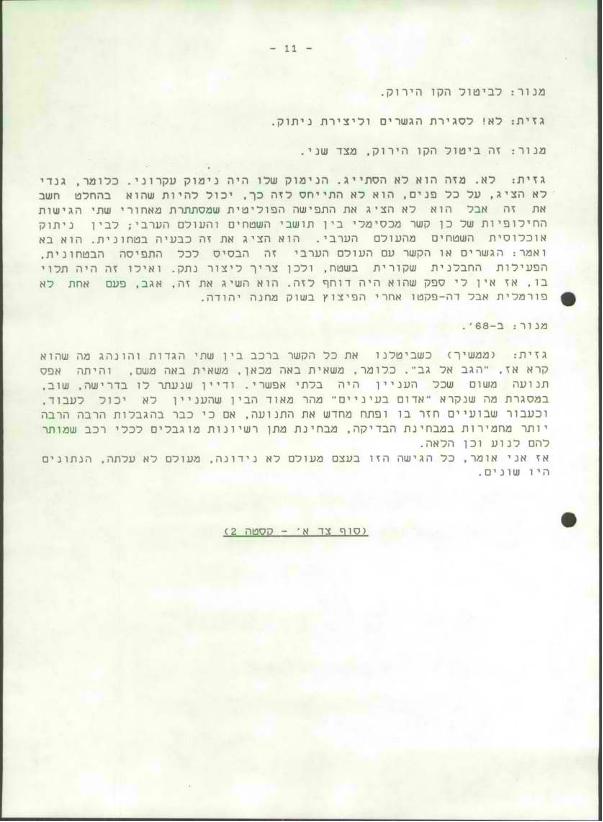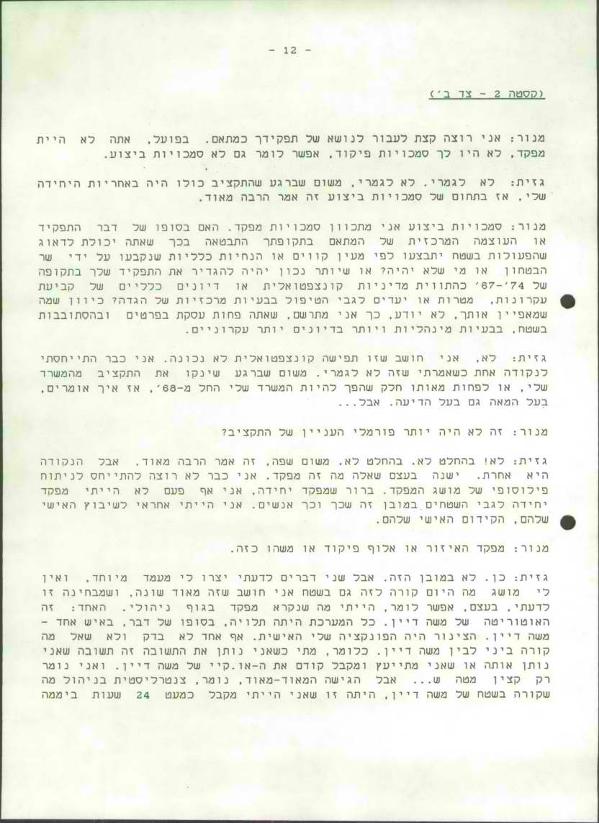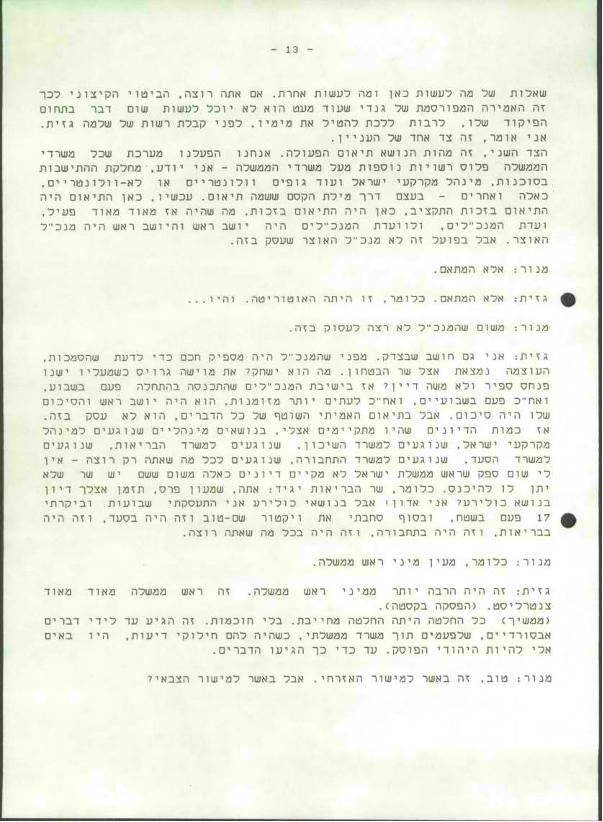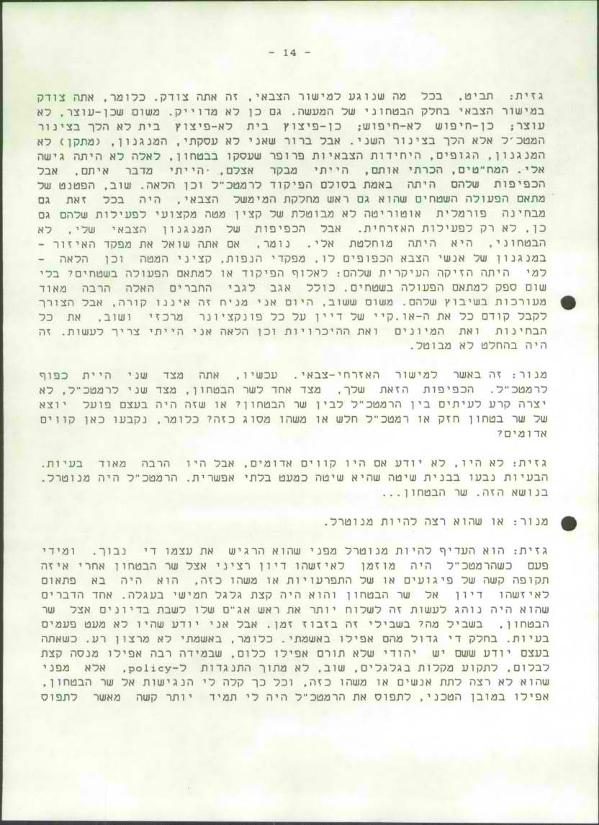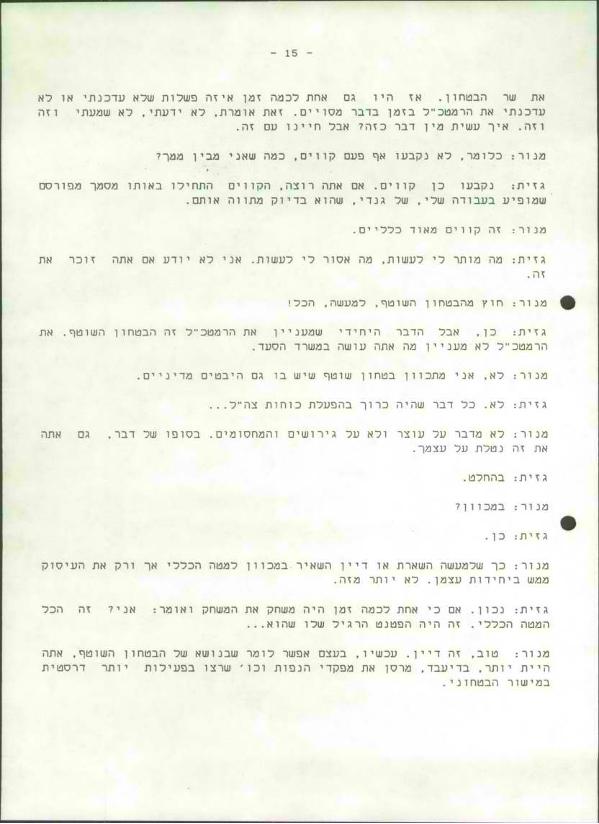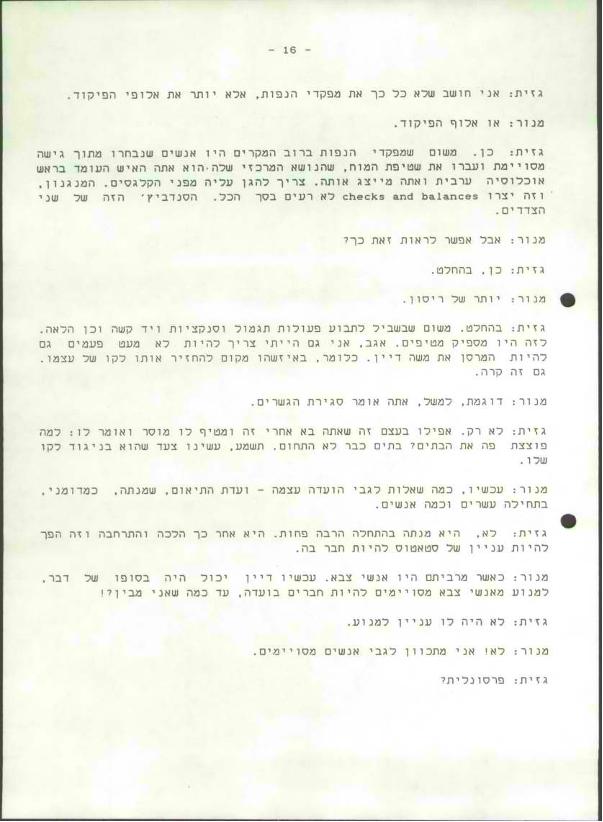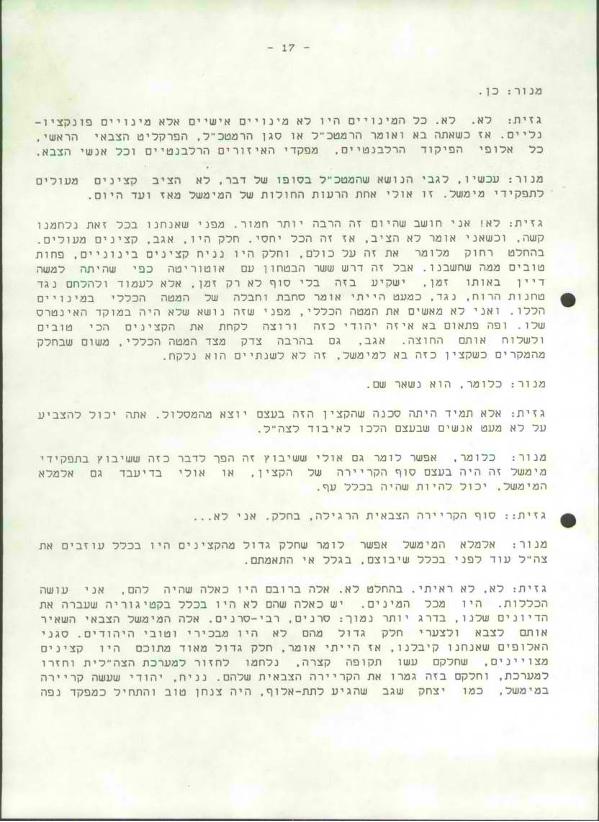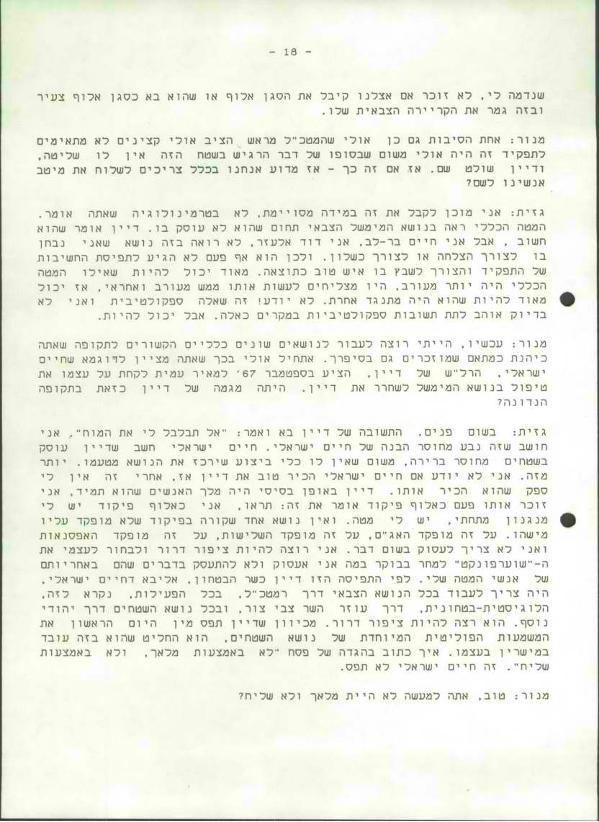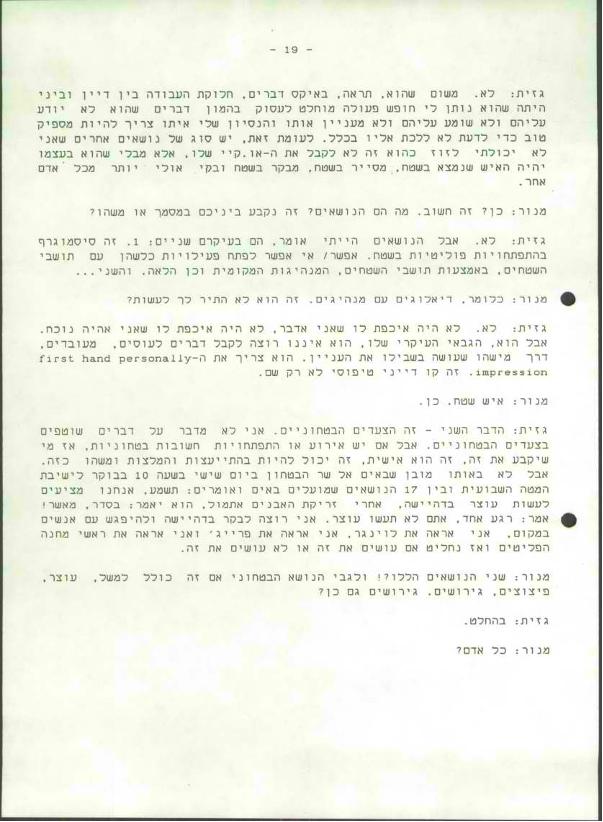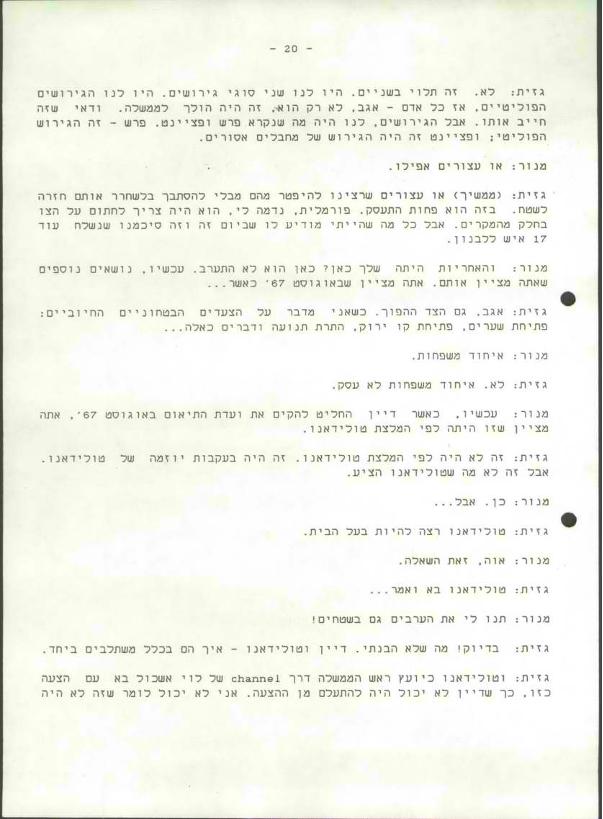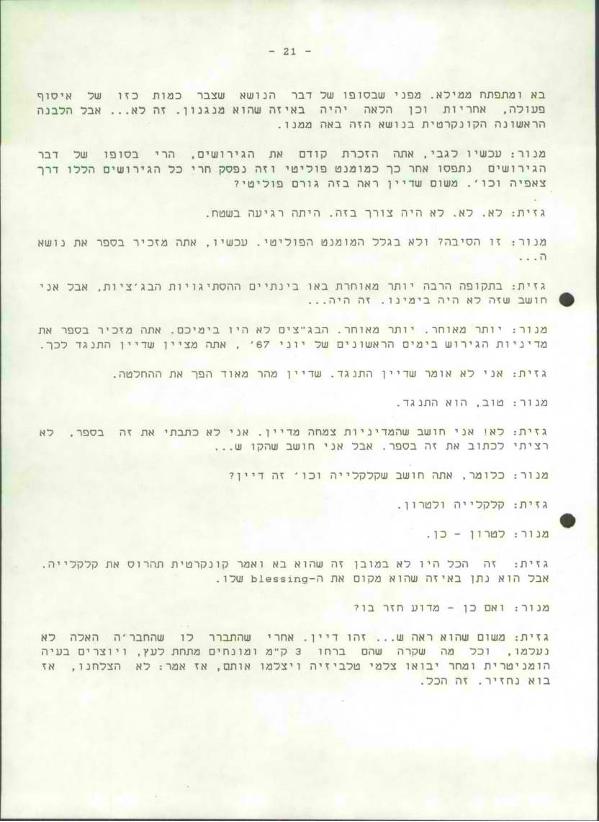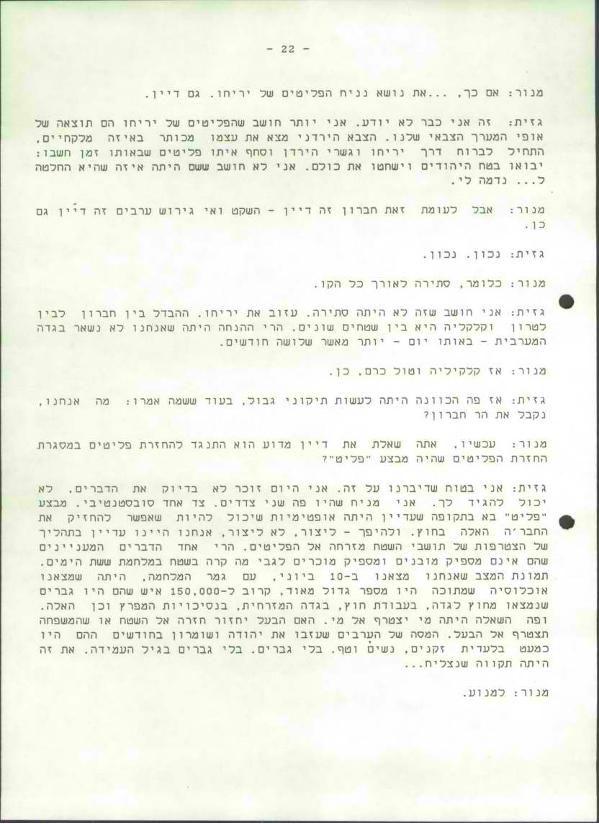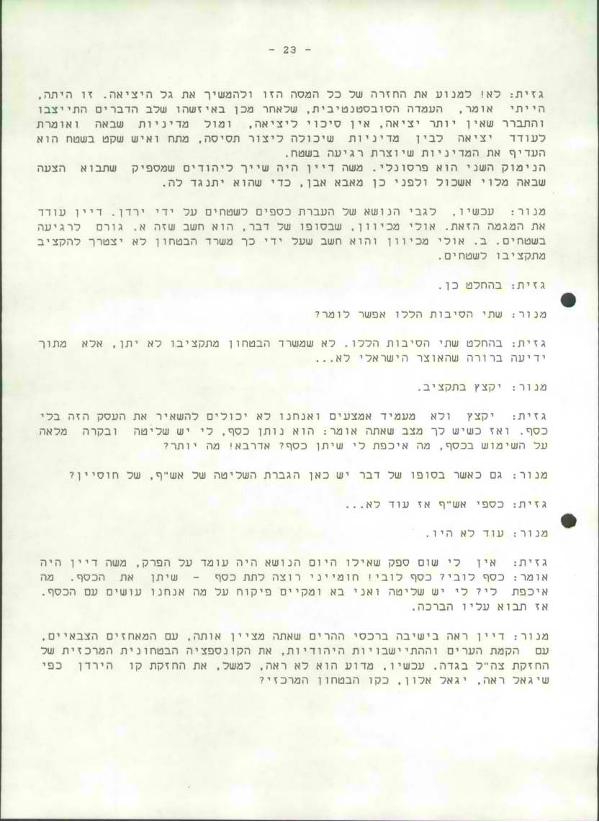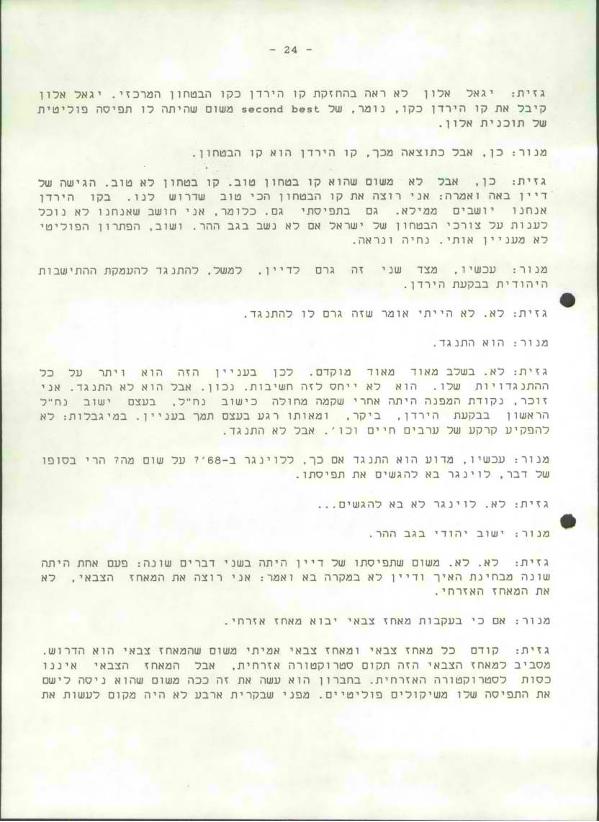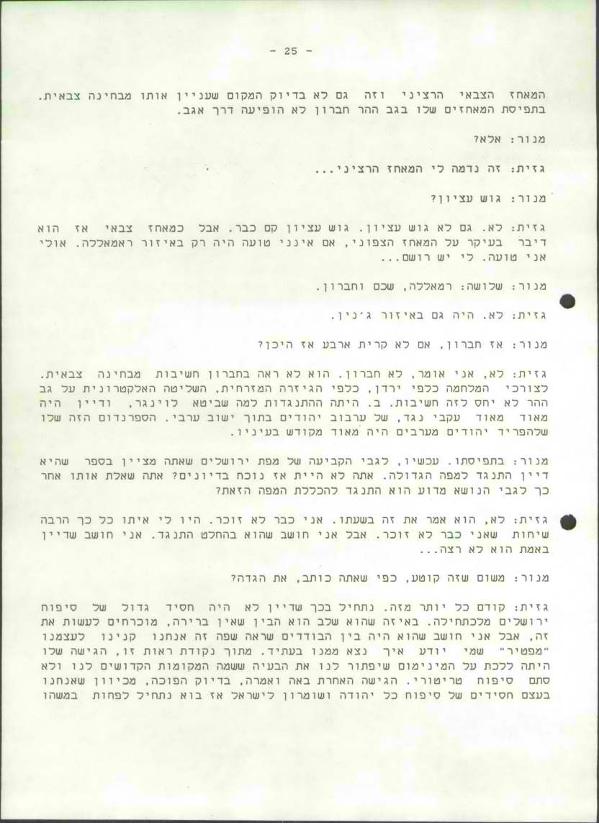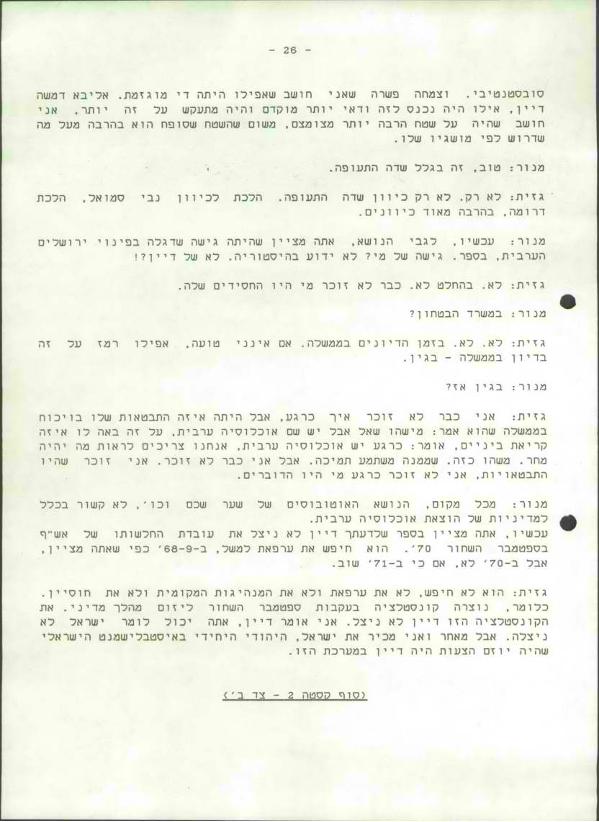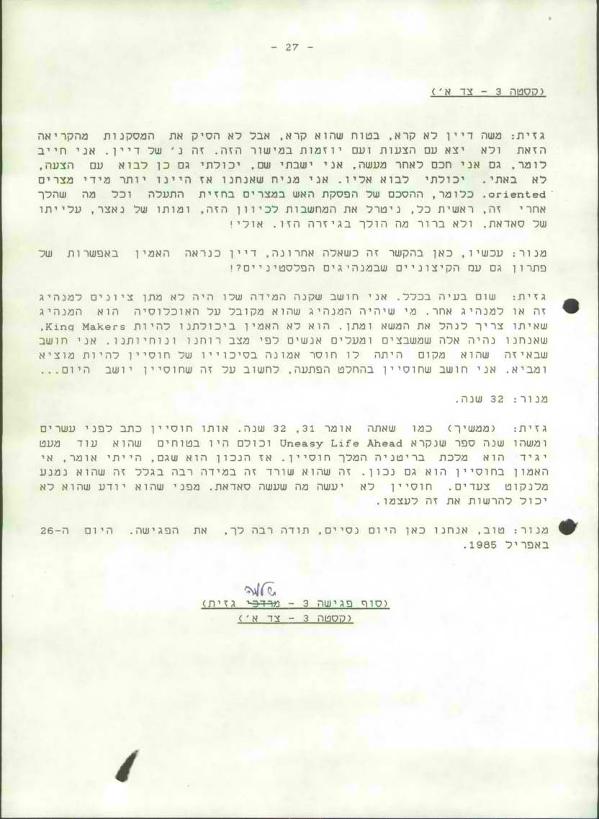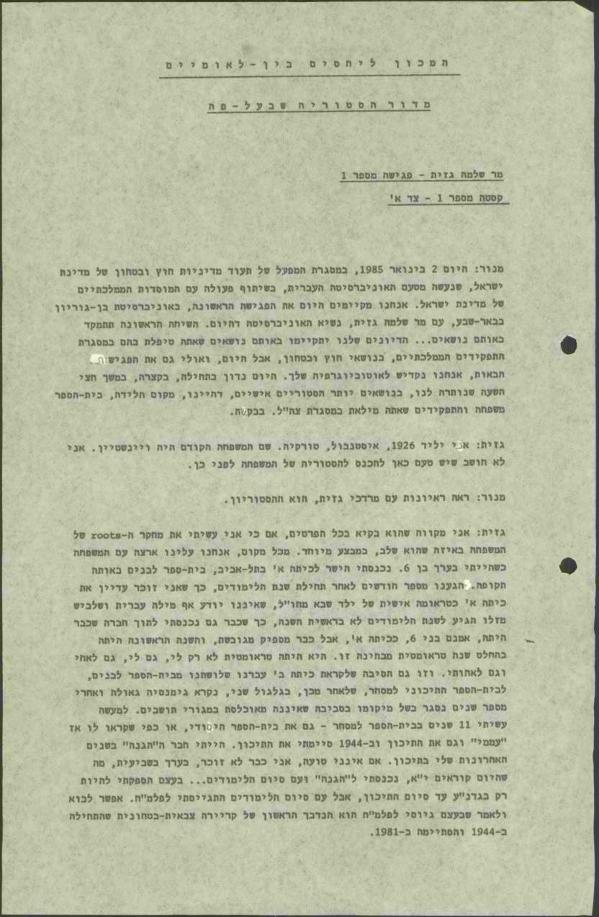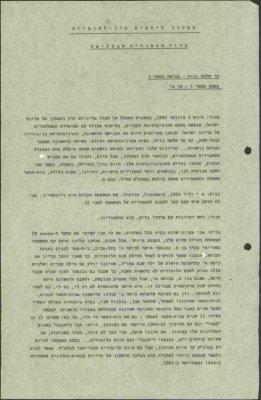Shlomo Gazit filled many roles during his military career, most famously, it seems, head of the Military Intelligence Directorate. However, his most notable legacy is designing the Israeli policy in the occupied territories as an “enlightened occupation,” a regime that aims to make Palestinians’ daily lives as comfortable as possible, while staunchly suppressing any attempt at political resistance. As part of this concept, Gazit designed and developed several of the practices Israel has used, and continues to use, throughout the occupation – including expulsions and home demolitions.
Gazit designed policy in the Occupied Territories when he served as chair of the Committee for Coordination of Activities in the Occupied Territories (later renamed The Coordination of Government Activities in the Territories) and as the head of the General Staff Military Government and Regional Security Department in the years following the 1967 War. In these positions, Gazit did more than implement government policy in the early days of the occupation, but, in fact, conceived and initiated many aspects of this policy himself. “Everything that has been written as principles [of the policy in the Territories], I drafted. It was not him [Defense Minister Moshe Dayan] who drafted [them],” Gazit said in 1985 after retiring from the IDF in a lengthy interview conducted as part of a Hebrew University David Institute documentation project.
In the same interview, Gazit admitted that, “The policy in the Territories, in its entirety, did not follow the rules of absolute justice, of absolute law and justice.” As someone who was behind this policy in practice, Gazit knew what he was saying. The power he had, made him, “much more than a mini prime minister,” as he himself described it.
We post here the full transcripts of three conversations with Shlomo Gazit from 1985 – nearly 50 pages of transcripts. The documents are stored in the Israel State Archive (ISA).

